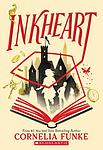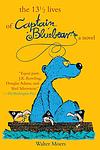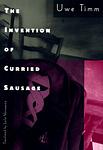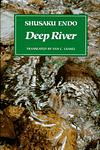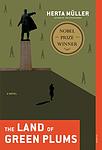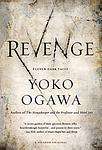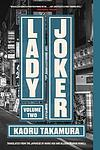The Greatest Japanese, German "Fiction" Books Since 1990
Click to learn how this list is calculated.
This list represents a comprehensive and trusted collection of the greatest books. Developed through a specialized algorithm, it brings together 284 'best of' book lists to form a definitive guide to the world's most acclaimed books. For those interested in how these books are chosen, additional details can be found on the rankings page.
Genres
Countries
Date Range
Reading Statistics
Click the button below to see how many of these books you've read!
Download
If you're interested in downloading this list as a CSV file for use in a spreadsheet application, you can easily do so by clicking the button below. Please note that to ensure a manageable file size and faster download, the CSV will include details for only the first 500 books.
Download-
1. The Wind-Up Bird Chronicle by Haruki Murakami
A man's search for his wife's missing cat evolves into a surreal journey through Tokyo's underbelly, where he encounters a bizarre collection of characters with strange stories and peculiar obsessions. As he delves deeper, he finds himself entangled in a web of dreamlike scenarios, historical digressions, and metaphysical investigations. His reality becomes increasingly intertwined with the dream world as he grapples with themes of fate, identity, and the dark side of the human psyche.
-
2. Never Let Me Go by Kazuo Ishiguro
The novel is a haunting tale of three friends, who grow up together at a seemingly idyllic English boarding school. As they mature, they discover a dark secret about their school and the purpose of their existence, which is to become organ donors for the rest of society. The story is a profound exploration of what it means to be human, the morality of scientific innovation, and the heartbreaking reality of love and loss.
-
3. Austerlitz by W. G. Sebald
The novel follows the story of Jacques Austerlitz, an architectural historian who was brought to England on a Kindertransport from Czechoslovakia during World War II. As an adult, Jacques embarks on a journey to uncover his past, including his original identity, his parent's fate, and his own lost history. The narrative is a haunting exploration of memory, identity, and the lasting impact of the Holocaust.
-
4. The Book Thief by Markus Zusak
Set in Nazi Germany during World War II, the novel follows the story of a young girl who finds solace in stealing books and sharing them with others. In the midst of the horrors of war, she forms a bond with a Jewish man her foster parents are hiding in their basement. The story is narrated by Death, offering a unique perspective on the atrocities and small acts of kindness during this period. The girl's love for books becomes a metaphor for resistance against the oppressive regime.
-
5. The Reader by Bernhard Schlink
"The Reader" is a poignant narrative centered around a young German boy's complex relationship with an older woman, who later turns out to be a former Auschwitz guard. Their relationship begins with her teaching him to read, but takes a drastic turn when she disappears, only to reemerge on trial for war crimes. The novel explores themes of guilt, shame, and redemption, as the boy, now a law student, grapples with his feelings for a woman he once loved, but whose past actions he cannot reconcile with.
-
6. The Rings of Saturn by W. G. Sebald
"The Rings of Saturn" is a richly detailed travelogue that follows the narrator's journey along the coast of Suffolk, England. The narrative weaves together history, literature, and personal anecdotes, exploring topics as diverse as the decline of the herring industry, the horrors of colonialism in the Congo, and the life of philosopher Sir Thomas Browne. The book is characterized by its melancholic tone, its digressive style, and its meditative reflections on memory, time, and decay.
-
7. The Emigrants by Winfried Georg Sebald
"The Emigrants" is a novel that explores the experiences and memories of four different emigrants, each with a unique and complex history. The narrative primarily focuses on the psychological impact of displacement and the haunting nature of the past. The author delves deep into their lives, revealing their struggles with identity, loss, and the persistent influence of their roots. The narrative is interwoven with historical events, photographs, and other documents, creating a rich tapestry that blurs the line between fact and fiction.
-
8. Kafka On The Shore by Haruki Murakami
"Kafka On The Shore" is a surreal and philosophical novel by Haruki Murakami that follows two parallel storylines. The first is that of Kafka Tamura, a 15-year-old boy who runs away from home to escape an Oedipal prophecy and searches for his missing mother and sister. The second storyline follows Nakata, an elderly man who has lost his memory but possesses the ability to communicate with cats. As their paths converge, they encounter strange and mystical events that challenge their perceptions of reality and identity. The novel explores themes of fate, free will, and the human psyche, and is a captivating and thought-provoking read.
-
9. 1Q84 by Haruki Murakami
The novel is a complex and surreal narrative that intertwines the lives of two protagonists: a woman assassin who becomes embroiled in a mysterious and dangerous cult, and a male writer caught in a complicated love triangle. As they navigate their respective challenges, they unknowingly cross into an alternate reality, referred to as 1Q84, where the lines between fact and fiction blur. The novel explores themes of love, fate, and the power of the individual against the constraints of a conformist society.
-
10. Uzumaki by Junji Ito
The book is a horror manga that centers around a small fog-bound Japanese town cursed by supernatural events involving spirals. As the obsession with the spiral pattern begins to spread among the townspeople, it manifests in increasingly bizarre and terrifying ways, warping both the minds of the inhabitants and the very fabric of the town itself. The narrative follows a high school teenager and her boyfriend as they struggle to understand and survive the madness engulfing their once-peaceful home, revealing the spiral's hypnotic and monstrous influence on both the human psyche and the natural world.
-
11. The Swarm by Frank Schatzing
"The Swarm" is a science fiction novel that explores the disastrous consequences of mankind's exploitation of the world's oceans. The narrative follows a group of scientists around the world as they try to understand a series of inexplicable, catastrophic natural disasters. They eventually discover that these events are not random but are the result of a collective intelligence in the sea, a swarm of marine life that has decided to fight back against humanity's destruction of their habitat. The book combines elements of ecological thriller, disaster novel, and speculative fiction as it explores the potential consequences of human interference with the natural world.
-
12. Inkheart by Cornelia Funke
The book revolves around a young girl named Meggie and her father Mo, who possesses a unique ability to bring characters from books to life by reading aloud. This gift, however, comes with a price, as they are entangled in a dangerous adventure when a villain from a fantasy book called "Inkheart" is accidentally summoned into the real world. As they struggle to fix the chaos caused by this crossover, they must navigate a treacherous world of magic and betrayal, while attempting to thwart the villain's sinister plans and protect the balance between reality and the fantastical realms of literature.
-
13. Vertigo by W. G. Sebald
"Vertigo" is a complex narrative that combines elements of fiction, travelogue, biography, and autobiography. The novel is divided into four sections, each exploring the life and works of different historical figures such as Stendhal, Kafka, and Casanova, as well as the author's own experiences. The narrative is characterized by its exploration of themes such as memory, identity, and the past, often blurring the lines between fact and fiction. The book is also notable for its distinctive style, featuring long, meandering sentences and a lack of traditional plot structure.
-
14. Out by Natsuo Kirino
"Out" by Natsuo Kirino is a gripping and dark psychological thriller set in Tokyo. The story revolves around four women who work the night shift at a factory and become entangled in a web of murder and cover-up. As they struggle to dispose of a dead body, their lives quickly spiral out of control, revealing their hidden desires and the depths they are willing to go to protect themselves. With its intense plot and exploration of societal pressures and gender dynamics, "Out" is a compelling and thought-provoking read.
-
15. The 13 1/2 Lives Of Captain Bluebear by Walter Moers
The book is a whimsical fantasy novel that follows the adventures of a blue bear as he navigates a world filled with bizarre creatures and surreal landscapes. With half a life more than the usual allotment for his species, the protagonist recounts his experiences, which range from being raised by mini-pygmies to attending an academy for gifted creatures, and from escaping the clutches of a carnivorous island to befriending a sentient tornado. Each of his thirteen and a half lives is a unique tale of curiosity, learning, and survival, set in a richly imagined universe that defies the ordinary at every turn.
-
16. The Invention of Curried Sausage by Uwe Timm
The book is a fictional account of the creation of the popular German fast food, curried sausage. The story unfolds through the narration of a young journalist who visits an elderly woman, believed to be the inventor of the dish during World War II. It explores the woman's tumultuous love affair with a young sailor during the chaotic final days of the war, her struggle for survival, and the circumstances that led to the creation of the spicy sausage. The novel is a blend of romance, war-time survival, and culinary innovation.
-
17. Deep River by Shūsaku Endō
"Deep River" is a profound exploration of faith, suffering, and redemption, told through the intertwined narratives of four Japanese survivors of World War II. Each character carries their own personal trauma and guilt, leading them on separate spiritual journeys that converge at India's holy Ganges River. As they grapple with their pasts and seek forgiveness and meaning in their lives, the novel delves into themes of cultural clash, religious conflict, and the human capacity for love and understanding amidst pain.
-
18. The Land Of Green Plums by Herta Müller
The novel is a poignant exploration of life under a repressive regime, following a group of young friends in Romania during the totalitarian rule of Nicolae Ceaușescu. Through the eyes of the narrator, a young woman with aspirations of freedom and self-expression, the story delves into the oppressive atmosphere of surveillance, fear, and betrayal that permeates their existence. As they struggle to maintain their integrity and hope amidst the dehumanizing forces of the state, the friends are inexorably drawn towards tragic outcomes, illustrating the devastating impact of living under constant oppression and the indomitable spirit that resists it.
-
19. Crossfire by Miyuki Miyabe
Crossfire is a suspenseful novel that follows the life of a young woman who possesses pyrokinetic abilities, allowing her to start fires with her mind. She uses her powers to avenge victims of violent crimes, but her actions attract the attention of a determined detective. As she continues her vigilante justice, she becomes embroiled in a conspiracy involving a religious cult and must confront her own past and the consequences of her actions.
-
20. Measuring the World by Daniel Kehlmann
"Measuring the World" is a historical novel that reimagines the lives of two brilliant and driven men, German mathematician Carl Friedrich Gauss and German geographer Alexander von Humboldt. The narrative alternates between the two protagonists, exploring their individual quests to quantify and understand the world. Gauss, a child prodigy from a poor family, rises to become one of the greatest mathematicians in history, while Humboldt, a wealthy and ambitious explorer, embarks on a five-year journey across South America. Their paths converge in a humorous and touching manner, highlighting the contrast between their approaches to knowledge and discovery.
-
21. Floating In My Mother's Palm by Ursula Hegi
The book is a poignant coming-of-age story set in a post-war German town, where a young girl navigates the complexities of her family life and the secrets of her community. Through her eyes, readers experience her relationships with colorful local characters, her discovery of love and loss, and her quest for identity amidst the lingering shadows of World War II. The narrative is a tapestry of small-town life, capturing the essence of growth and the bittersweet nature of memory, as the protagonist learns about the resilience of the human spirit and the fluidity of time, much like floating in the comforting yet unpredictable embrace of her mother's palm.
-
22. Revenge: Eleven Dark Tales by Yoko Ogawa
This collection delves into the unsettling corners of the human psyche through eleven interconnected stories that explore themes of desire, pain, and retribution. Each tale weaves a haunting narrative where characters confront peculiar incidents and twisted relationships, often finding themselves entangled in situations where the line between reality and the surreal blurs. The stories, set against the backdrop of everyday life in Japan, reveal the quiet horror lurking beneath the surface of ordinary encounters, as the protagonists grapple with the consequences of their dark obsessions and the inexorable pull of vengeance.
-
23. The Blind Side of the Heart by Julia Franck
"The Blind Side of the Heart" is a historical novel that explores the life of a German woman before, during, and after World War II. The story begins with her abandonment of her young son at a railway station, then flashes back to her own childhood, her experiences during the war, and her tumultuous relationships. The narrative provides a deep and unflinching look at the psychological effects of war and the struggle for survival, as well as the profound impact of trauma and loss.
-
24. Lady Joker by Kaoru Takamura
"Lady Joker" is a gripping crime thriller set in Japan, where a mysterious woman named Yuriko becomes entangled in a dangerous game of deceit and revenge. As she navigates the seedy underbelly of Tokyo, Yuriko takes on various identities, using her cunning and intelligence to manipulate those around her. With a complex web of characters and a plot filled with unexpected twists, the book explores themes of power, identity, and the blurred lines between good and evil.
-
25. Six Four by Hideo Yokoyama
In this gripping crime thriller, a former detective turned press officer is haunted by a cold case from 14 years ago, the unsolved abduction of a young girl. As he navigates the complex world of police bureaucracy and media pressure, he becomes entangled in a web of secrets and corruption that threatens to unravel his career and personal life. With meticulous attention to detail and a deep exploration of the human psyche, this novel delves into the complexities of crime, guilt, and the lengths one will go to protect their reputation.
Reading Statistics
Click the button below to see how many of these books you've read!
Download
If you're interested in downloading this list as a CSV file for use in a spreadsheet application, you can easily do so by clicking the button below. Please note that to ensure a manageable file size and faster download, the CSV will include details for only the first 500 books.
Download










